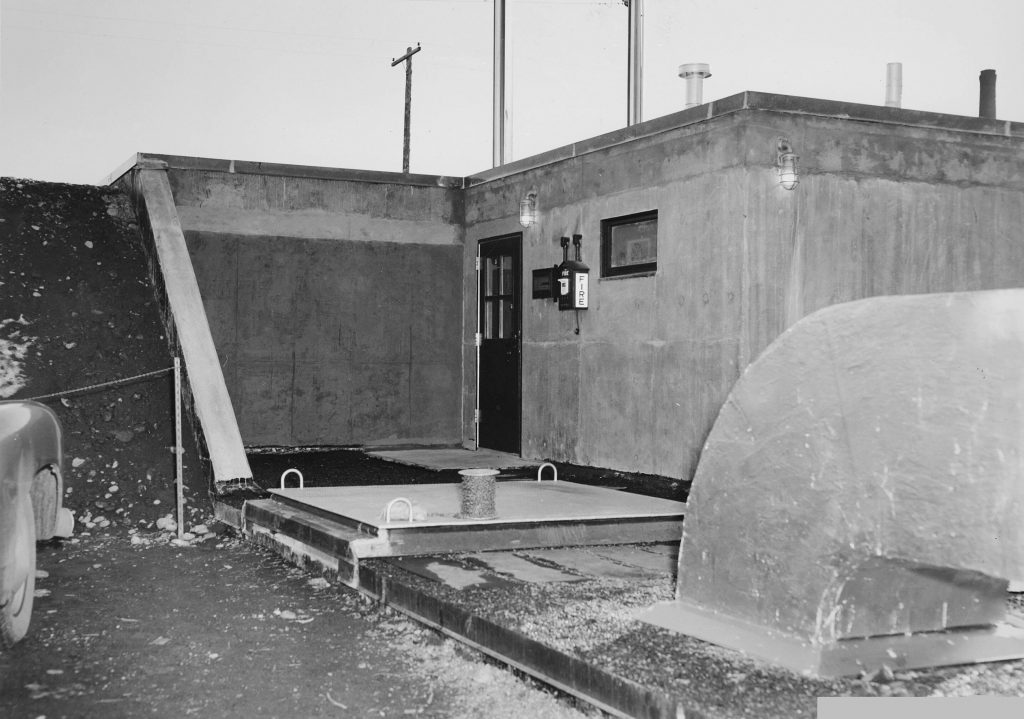I arrived in Pasco on the train around 1:30 in the morning, May 1, 1943. The wind was blowing like hell, and if a train had been going back East I would have been on it. I went to Hanford the next day, a Sunday, and nothing was there. No barracks or anything else. I was on per diem and was told to stick around. I was told this was Washington, the Evergreen State, and after a month and a half nobody could have gotten me away. It was an adventure.
I lived in a Pasco hotel for three or four weeks, then in a trailer camp near the river in Pasco for a month. After that I moved to a house in White Bluffs and stayed there until construction was done. Lots of housing was left in White Bluffs and wasn’t torn down until construction was complete. Buildings in the town of Hanford were torn down right away so they could build the construction camp.
At White Bluffs, nearby, was a marshaling yard for the railroad, and ware-houses. Also, the ice house was used for the project, as well as an old drug store, hotel, a saloon. They did business until construction was finished, and then most were torn down. Now, all that’s left is what had been the bank and the ice house. There also was a red wooden railroad station, with green trim.
My title then was safety engineer and fire marshal. We had some major fires, and lost a fourth of one barracks. We had some trouble with water on that one because the water lines were just being put in. The fire was caused by a smoker on night shift. Nobody was killed. We did have some fatalities in construction. But accidents weren’t common. This job had the lowest fire loss and lowest accident rate of any Corps of Engineers job.
I also worked on patrol security. The worst crime we ever had was when the Western Union was held up. They were caught in Yakima. Mostly, it was picking up drunks, and stopping fights. When you have construction workers, you have fights.
Remember a big percentage were Okies and Arkies. They were family people. They came here because they had nothing at home. They were damn good workers. That’s what General Groves said. “It was the Okies and Arkies who built this job. The ideas may have come from the scientists but these people built it.”
Groves was a rough, tough construction man, fair and honest. If he gave you a job to do, you damn well better do it. I used to see him periodically because he was an old fire buff and when he came out to Hanford he liked to visit the fire stations. Groves liked to have a meal and sit with the fellows and talk.




